If you're facing the tough decision to resign due to ethical concerns, crafting a thoughtful resignation letter is essential. In such situations, it's important to communicate your feelings clearly while maintaining professionalism. This letter not only serves as a formal notification of your departure but also highlights the values that drive your decision. Curious about how to structure this letter effectively? Read on for a detailed template that can guide you through this challenging process.

Clear articulation of ethical concerns.
Resignation stemming from ethical concerns requires careful consideration of the implications involved. Employees should articulate specific ethical dilemmas encountered in the workplace, such as potential violations of company values or industry standards. For instance, instances of fraudulent practices that undermine consumer trust, unequal treatment among staff that violates equitable workplace principles, or lack of adherence to environmental regulations that impact community welfare could serve as substantial foundations for resignation. These actions may not only jeopardize the reputation of the organization in sectors like finance, health, or technology, but also raise questions about personal integrity and commitment to ethical practices in professional settings. Ultimately, resigning under such circumstances can reflect a profound commitment to maintaining standards of accountability and authenticity in one's career.
Professional and respectful tone.
Concerns regarding ethical practices in the workplace can lead employees to make the difficult decision to resign. In such situations, it is common for individuals to experience feelings of uncertainty and conflict, especially when they valued their positions. Resigning is a significant step. Employees may encounter challenges in navigating institutional policies, understanding their rights, and contemplating potential repercussions. In a respectful manner, the resignation letter should encapsulate the key factors contributing to this decision without delving into extensive details about ethical grievances, maintaining professionalism. Including gratitude for the opportunities afforded during the tenure can help foster an amicable parting, signalling a desire for positive relations moving forward. Documenting the resignation date clearly ensures transparency and allows for a smooth transition.
Specific examples without breaching confidentiality.
When resignation occurs due to ethical concerns, it often stems from situations that compromise integrity within the workplace. A recent incident involved the mishandling of confidential client data, which did not align with the organization's stated commitment to privacy and ethics. For instance, a client's personal information was inadvertently shared with unauthorized personnel during a team meeting. Additionally, there were instances of pressure from management to prioritize profit over ethical considerations, leading to unethical business practices that conflicted with my personal values. These factors contributed to my decision to resign from my position, as maintaining professional ethics is imperative for my career.
Intent to resign and proposed notice period.
Employees facing ethical concerns within their organization may choose to resign to uphold their values and integrity. The intention to resign should be communicated professionally. Suggested notice periods often range from two weeks to one month, depending on company policy or existing agreement. Clear articulation of the ethical concerns--such as potential misconduct, breaches of company policy, or misalignment of personal values--can provide context for the decision. A focus on maintaining professionalism during the transition can preserve relationships and uphold personal reputation in the industry.
Gratitude for opportunities and experiences.
Resigning due to ethical concerns can be a difficult decision, shaped by deeply held values and principles. Numerous individuals face similar situations in their careers. Despite this challenge, expressing gratitude can foster positive connections. When expressing gratitude, consider specific experiences that contributed to your growth. Highlight projects that honed your skills, mentorship opportunities that guided professional development, and collaboration with colleagues that created noteworthy outcomes. Acknowledge how these experiences shaped your understanding of the industry, enriching both your personal and professional life. Focus on the ethical concerns that led to your resignation, emphasizing personal values such as integrity, transparency, and respect. Ethical concerns can arise from various scenarios, including workplace practices, corporate policies, or company leadership decisions. Sometimes whistleblowing is necessary to uphold these ethical standards. Closure is important. Leaving on amicable terms maintains professional relationships. Delivering your message with respect can ensure a lasting impact, preserving your reputation as a principled professional committed to doing what is right.
Letter Template For Resignation Following Ethical Concerns Samples
Letter template of resignation stemming from professional integrity issues
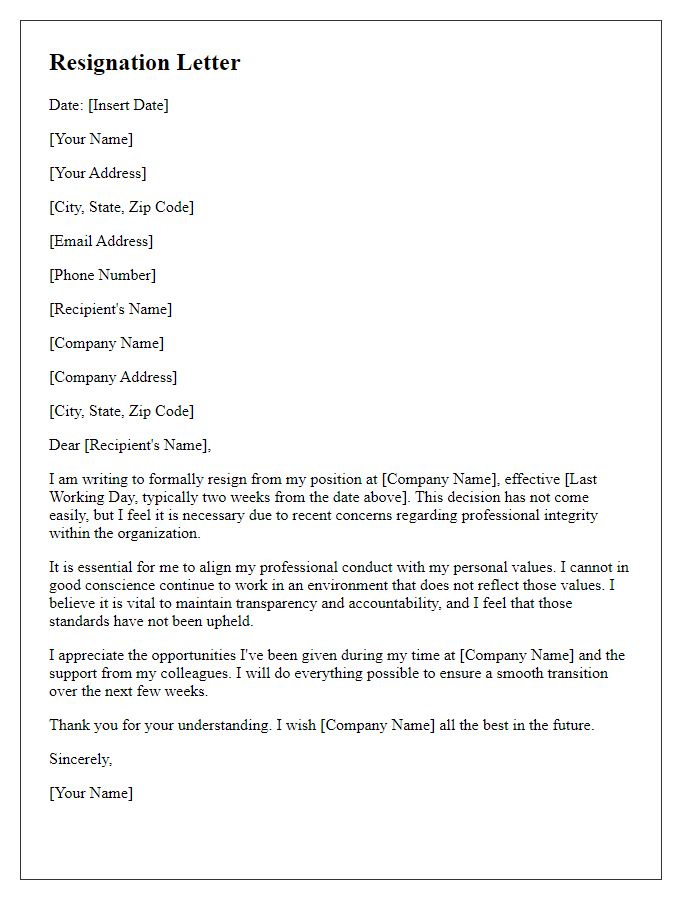
Letter template of resignation based on ethical misalignments with company policies
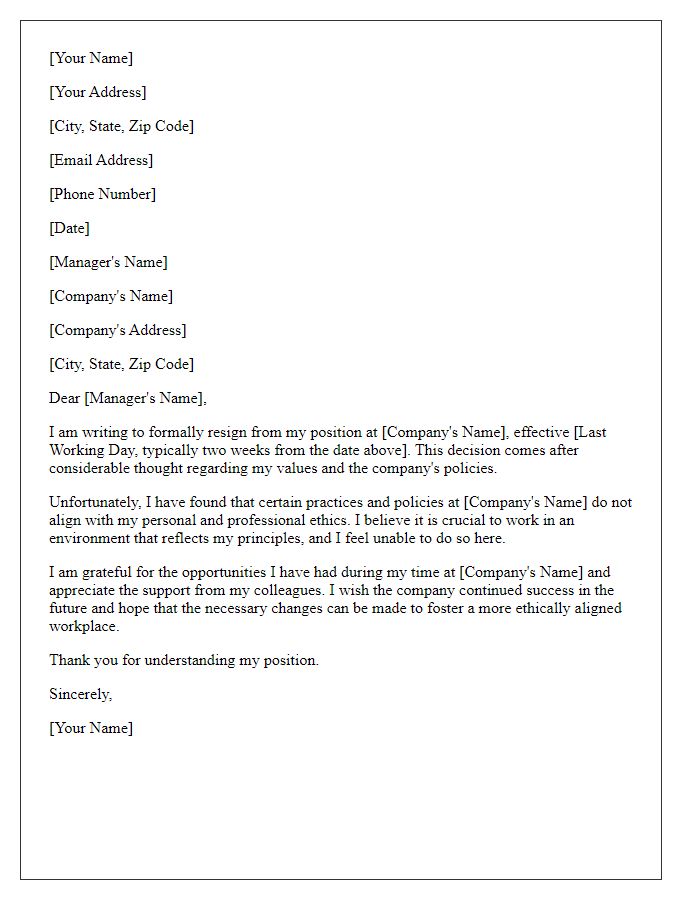
Letter template of resignation arising from concerns over ethical practices
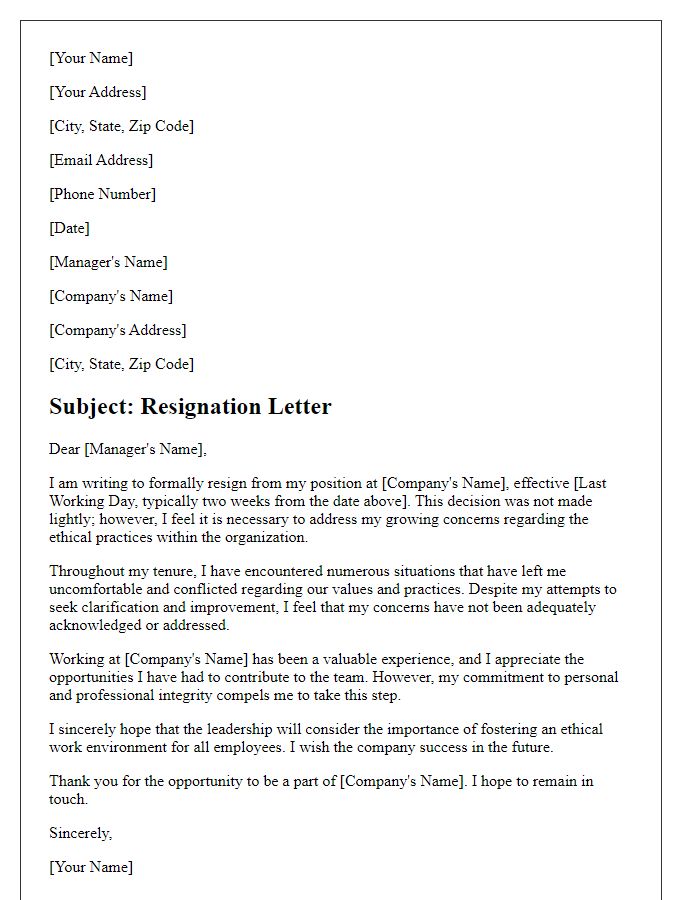
Letter template of resignation motivated by ethical misconduct witnessed
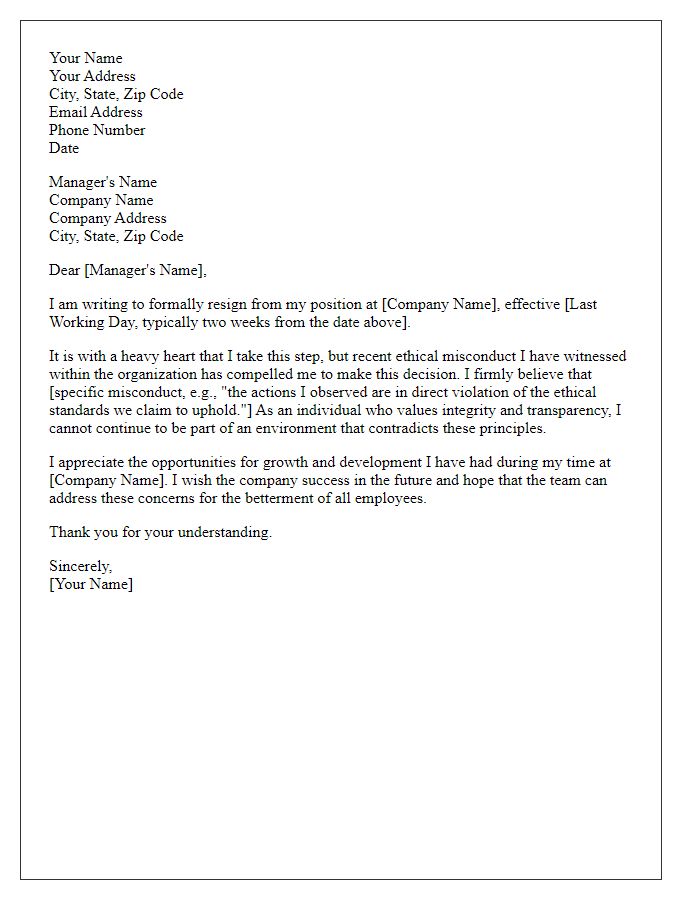
Letter template of resignation because of disparities in ethical expectations
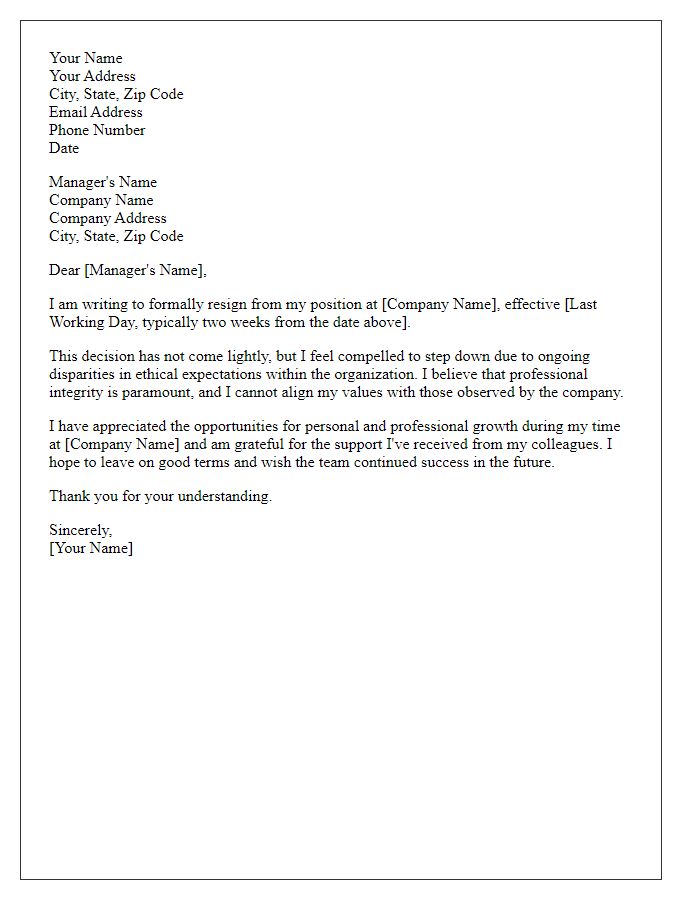

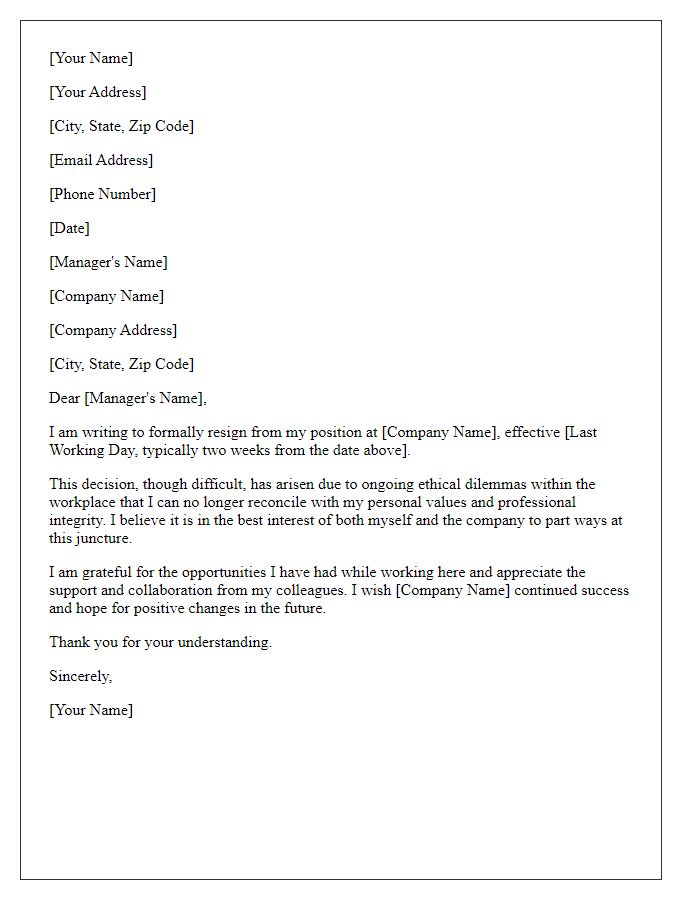
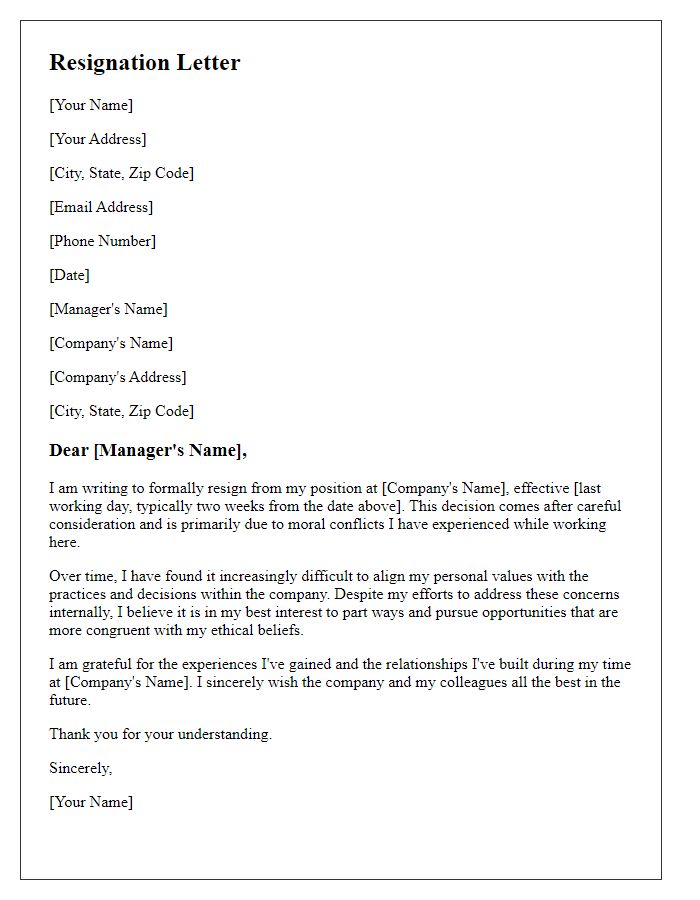
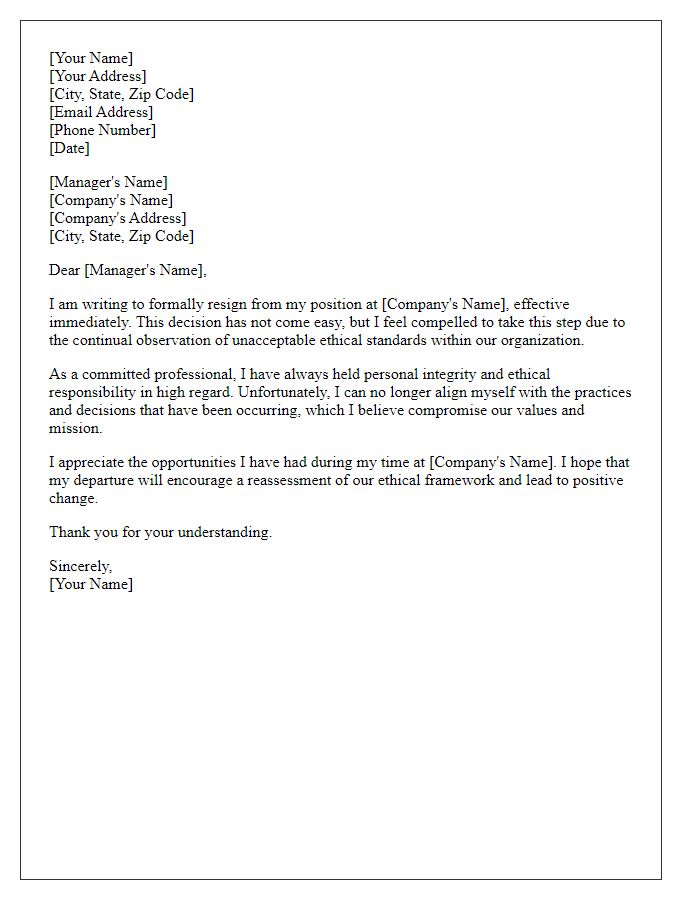
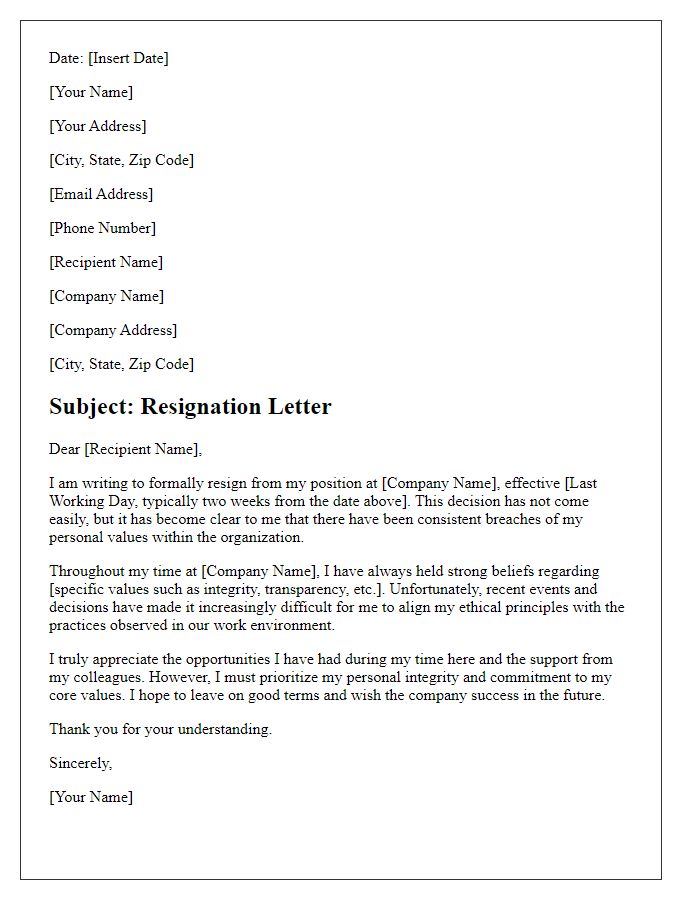
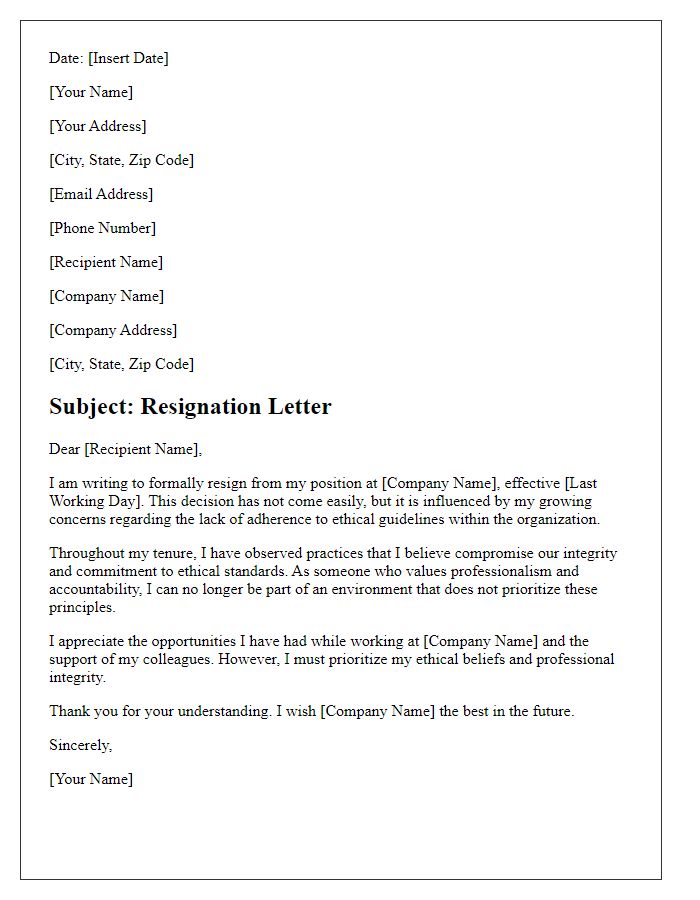


Comments